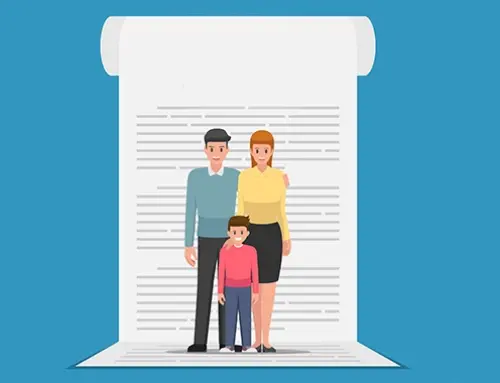Contents
Beyond the Verdict: How Plaintiff Lawyers Protect Post-Settlement Value
If the plaintiff wins after negotiating a settlement, the legal battle may seem to be at an end, but the work of the plaintiff lawyer is by no means over. Beyond getting money for their clients, plaintiff lawyers ensure the settlement retains its value, is managed correctly, and remains in the best interests of the client. From structuring settlements to resolving liens and advising clients about taxes, attorneys safeguard the financial future of clients long after the verdict is in.
Structuring Settlements for Long-Term Security
One of a plaintiff attorney’s most critical responsibilities, both during and after negotiating a settlement, is advising clients on how to structure their settlement funds. While lump-sum payments may seem appealing, they can lead to financial mismanagement, unnecessary tax burdens, or vulnerability to creditors. Attorneys must consider their clients’ long-term financial needs, future expenses, and potential risks when recommending the best settlement structure.
I. Structured Settlements: A Reliable Income Stream
Structured settlements provide a stable, predictable income stream over time, reducing clients’ risk of too quickly exhausting their funds. Instead of a one-time payment, the client gets periodic payments customized to cover medical costs, living expenses, or other financial needs.
Many attorneys collaborate with financial advisors and settlement planners to create annuities tailored to clients’ needs. These professionals help in assessing the client’s financial situation, understanding their long-term needs, and structuring the settlement in a way that best serves the client’s interests. A key advantage of structured settlements is that the periodic payments are tax-free under the U.S. Internal Revenue Code §104(a)(2), ensuring the client retains more of their settlement money.
Moreover, structured settlements offer:
- Protection from Overspending – Prevents clients from making impulsive financial decisions.
- Creditor Protection – Since funds are not immediately accessible in a lump sum, they are less vulnerable to lawsuits or bankruptcy claims.
- Customized Payout Plans – Payments can be structured for life, for a set number of years, or even in increasing amounts to account for inflation or growing expenses.

II. Special Needs Trusts (SNTs): Preserving Public Benefits
For clients with disabilities or those who rely on government benefits such as Medicaid or Supplemental Security Income (SSI), receiving a large lump sum could disqualify them from essential public assistance. To avoid this, attorneys often set up a Special Needs Trust (SNT) to preserve eligibility while ensuring the client’s financial needs are met.
There are two primary types of SNTs:
- First-Party Special Needs Trusts – Funded with the beneficiary’s assets, including settlement proceeds, and must include a Medicaid payback provision.
- Third-Party Special Needs Trusts – Established with funds from family members or other parties and does not require Medicaid payback.
SNTs allow clients to use their settlement money for non-covered expenses like medical treatments, personal care attendants, and home modifications without affecting their eligibility for government programs.
III. Qualified Settlement Funds (QSFs): Flexible Distribution Planning
A Qualified Settlement Fund (QSF) is a temporary trust allowing attorneys to hold settlement proceeds while deciding the best distribution method. QSFs are especially useful in complex cases involving multiple plaintiffs, lien negotiations, or investment planning.
Rachel McCrocklin, Chief Trust Officer at Eastern Point Trust Company, highlights the strategic benefits of applying a QSF. “By introducing a QSF early in the settlement process, we effectively meet the needs of the defense by allowing them to swiftly conclude their involvement. This grants plaintiffs the breathing room necessary to explore and decide on the best financial, tax, and public benefit strategies without pressure,” McCrocklin outlines. This approach highlights the dual advantage of meeting the defense’s immediate needs while ensuring the plaintiffs’ long-term well-being. According to Eastern Point, a leading QSF trustee, the use of QSFs has tripled since 2020.
The key benefits of QSFs are as follows:
- Delays Taxable Events – Plaintiffs can defer receiving their funds until they determine the best tax strategy.
- Facilitates Lien Resolution – Helps attorneys handle Medicare, Medicaid, and other lien claims before distributing funds.
- Allows Time for Planning – Plaintiffs can consult financial professionals before deciding how to receive their funds.
By placing settlement funds in a QSF, clients and their attorneys can explore options such as structured settlements, investment strategies, or special needs trusts without immediate financial pressure, providing a sense of relief and reassurance in the planning process.
Managing Liens and Subrogation Claims
It is crucial to resolve outstanding liens before a plaintiff can fully benefit from a settlement. These financial obligations can significantly impact the final amount a plaintiff takes home. When negotiating a settlement, addressing liens early in the process can help ensure that the plaintiff receives the maximum possible compensation. Liens can come from various sources, each with its own legal and procedural complexities.
- Medical Liens: Healthcare providers or insurance companies may have claims for medical expenses they covered while the case was pending. Hospitals, doctors, and private insurers can assert liens to recover costs.
- Medicare and Medicaid Liens: Government programs have strict reimbursement requirements. If a plaintiff received medical treatment through Medicare or Medicaid, federal and state agencies must be repaid before any settlement funds are disbursed. Noncompliance can lead to penalties or future benefit denials, underscoring the need for caution and awareness in dealing with these liens.
- Workers’ Compensation Liens: If the case involves a workplace injury, the workers’ compensation insurer may have a right to reimbursement from the settlement or award. These claims must be negotiated with utmost care to ensure the plaintiff retains as much of their recovery as possible.
- ERISA and Private Health Insurance Liens: Some employer-sponsored health plans, particularly those governed by the Employee Retirement Income Security Act (ERISA), have strict reimbursement rights. These liens often require careful legal analysis to determine their enforceability.
- Veterans Affairs (VA) and TRICARE Liens: If the plaintiff received medical care through the VA or military health system, the government may have a claim against the settlement.
Plaintiff lawyers play a crucial role in negotiating lien reductions to maximize the net settlement amount. They collaborate with lien resolution specialists, analyze lien validity, and employ legal strategies to challenge excessive claims. By reducing or eliminating liens, they help ensure their clients receive the compensation they deserve without undue financial burdens, providing a sense of reassurance and confidence.
Tax Implications and Strategic Planning
Understanding the tax consequences of a settlement is crucial to protecting its value. While personal injury settlements are generally tax-free under IRC Section 104(a)(2), portions related to punitive damages, emotional distress (without physical injury), or interest accrued on the award may be taxable. Proper tax planning can help maximize the net benefit of a settlement for clients.
I. Minimizing Tax Liabilities
Attorneys should take a proactive approach to structuring settlements in a way that reduces unnecessary tax burdens. Here are some key strategies:
- Allocating damages wisely – Lawyers can work with tax professionals to properly allocate damages between taxable and non-taxable portions. For instance, ensuring that emotional distress is tied to a physical injury may help maintain tax-exempt status.
- Using structured settlements – Since structured settlements provide tax-free periodic payments, they can help minimize immediate tax liabilities and provide long-term financial security.
- Utilizing special needs trusts (SNTs) – For clients with disabilities, an SNT can protect settlement funds while preserving eligibility for government benefits.
- Setting up a charitable trust – In cases where clients wish to donate part of their settlement, establishing a charitable trust can provide tax deductions and reduce overall tax liability.
II. State-Specific Tax Considerations
While federal tax laws generally apply, state tax treatment of settlements can vary. Some states tax portions of a settlement that the IRS exempts. Attorneys should consult local tax professionals to ensure compliance and optimize the tax impact.
Financial Advisory and Wealth Protection
Receiving a substantial settlement can be life-changing, offering financial security and new opportunities. However, without proper planning, it can also bring unforeseen challenges such as mismanagement, excessive spending, exposure to predatory lenders, and tax implications. To help clients navigate these complexities, plaintiff attorneys frequently collaborate with experienced financial advisors who specialize in wealth protection and strategic investment planning.
Key financial strategies for settlement recipients include:
1. Sustainable Investment Planning
A well-structured investment plan ensures that settlement funds last a lifetime. Financial professionals assist clients in:
- Creating diversified investment portfolios that balance risk and return.
- Generating passive income through interest, dividends, and growth strategies.
- Establishing structured settlements or annuities for long-term financial security.
2. Asset Protection and Risk Mitigation
Protecting settlement funds from external threats is crucial. Advisors help clients implement:
- Legal structures such as trusts or limited liability entities to shield assets.
- Insurance strategies, including umbrella policies, to minimize financial risks.
- Debt management techniques to prevent excessive borrowing and creditor claims.
3. Estate Planning and Wealth Transfer
Thoughtful estate planning ensures that settlement funds benefit future generations. Financial advisors and legal experts assist in:
- Drafting wills and trusts to safeguard assets and minimize estate taxes.
- Implementing power of attorney and healthcare directives for financial security.
- Structuring charitable contributions for tax benefits and legacy-building.
4. Tax Efficiency and Compliance
Large settlements may have tax implications that require expert handling. Financial planners work with tax professionals to:
- Optimize tax-efficient withdrawal strategies.
- Utilize tax-advantaged investment vehicles such as IRAs and 529 plans.
- Navigate potential capital gains taxes and state-specific regulations.
Ensuring Compliance with Court Orders and Legal Agreements
Legal settlements and judgments often come with binding obligations that must be carefully adhered to prevent disputes or penalties. These may include non-disclosure agreements (NDAs) that restrict parties from publicly discussing case details, structured payout requirements that dictate how and when financial compensation is distributed, or court-approved trust mandates that protect funds designated for specific purposes, such as child support or medical expenses.
Negotiating a settlement is a critical phase where attorneys work to secure favorable terms that align with their client’s best interests while ensuring compliance with legal requirements. Lawyers play a pivotal role in ensuring that clients comprehend these conditions and adhere to them fully. This involves scrutinizing settlement agreements, elucidating the implications of legal clauses, and guiding clients through their ongoing responsibilities. The ramifications of failing to comply with these terms can be severe, potentially leading to enforcement actions, financial penalties, or even contempt of court charges.
Furthermore, attorneys often collaborate with financial planners, trustees, or compliance officers to ensure the smooth execution of structured payouts or trust distributions. In cases involving NDAs, they advise clients on what can and cannot be disclosed, thereby reducing the risk of inadvertent breaches that could result in lawsuits.
By carefully monitoring compliance and offering sound legal guidance, attorneys play a crucial role in helping clients uphold their legal commitments. This proactive approach not only ensures compliance but also helps clients avoid unnecessary legal complications, providing them with a sense of relief and reducing any associated anxiety.
Final Thoughts
Winning a settlement is a milestone for plaintiffs, but it is merely the beginning of the monetary and legal complexities to follow. Plaintiff attorneys do more than just secure payment—they serve as advocates for their clients’ long-term financial interests, structuring settlements prudently, protecting them from excessive risks, and in accordance with the law.
Through skillful management of structured settlements, special needs trusts, tax planning, and lien resolution, attorneys ensure clients receive the highest amount of their settlements. Coordination with financial advisors, tax professionals, and trust administrators also ensures the money in settlements is used for its intended purpose—achieving financial security, fulfilling future needs, and providing for the availability of necessary benefits.
In the end, the work of a plaintiff lawyer extends far beyond the courtroom. Their work continues long after a decision is made, offering strategic guidance that translates a one-time settlement into long-term financial security. By keeping their clients’ best interests in mind, they allow individuals to look forward with confidence, knowing their financial future is secure.
Take Your Law Firm to the Next Level with RunSensible
RunSensible is your ultimate solution for seamless law firm automation. Designed with legal professionals in mind, it offers an all-in-one platform to streamline your operations and boost efficiency. Simplify your document management with secure cloud storage and real-time collaboration tools. Automate client intake with customizable digital forms and instant data syncing, ensuring a smooth onboarding process.
Stay organized with RunSensible’s calendaring and scheduling features, which sync critical deadlines and send automated reminders. Effortlessly track billable hours and generate accurate invoices with integrated time tracking and billing systems. Manage your emails and tasks through computerized workflows, prioritizing communication and ensuring nothing is missed. RunSensible’s robust CRM tools also help you build lasting client relationships by offering personalized updates and a centralized client database.
Explore how RunSensible’s all-in-one platform can revolutionize your legal department today and keep your organization ahead in a competitive legal landscape. Request a demo now and see how RunSensible can transform your team’s efficiency!
FAQs
1. How can a plaintiff lawyer help if a client faces financial exploitation?
Suppose a client is at risk of predatory financial offers or pressure from family and friends. In that case, a lawyer can advise on legal protections such as structured settlements, trusts, or financial conservatorship.
2. Can a settlement be reopened after it is finalized?
In most cases, a settlement agreement is final and legally binding. However, a plaintiff lawyer may explore legal options to challenge the settlement under rare circumstances, such as fraud, misrepresentation, or failure to disclose key information.
3. How do plaintiff lawyers protect minors who receive settlements?
When a minor is awarded a settlement, courts often require a guardianship account, structured settlement, or trust to ensure the funds are managed responsibly. Plaintiff lawyers work with financial planners to establish these protections.
4. Do plaintiff lawyers provide post-settlement tax advice?
Plaintiff lawyers are not tax professionals, but they often work with CPAs or attorneys to help clients understand potential tax obligations and structure settlements tax-efficiently.
5. How can plaintiff lawyers help clients manage settlement funds for long-term care?
Lawyers may help establish medical trusts, annuities, or special needs trusts for clients with long-term care needs to ensure that settlement funds last as long as needed.
References
https://www.dol.gov/general/topic/retirement/erisa
https://www.specialneedsalliance.org/the-voice/your-special-needs-trust-snt-defined-2/
Disclaimer: The content provided on this blog is for informational purposes only and does not constitute legal, financial, or professional advice.







